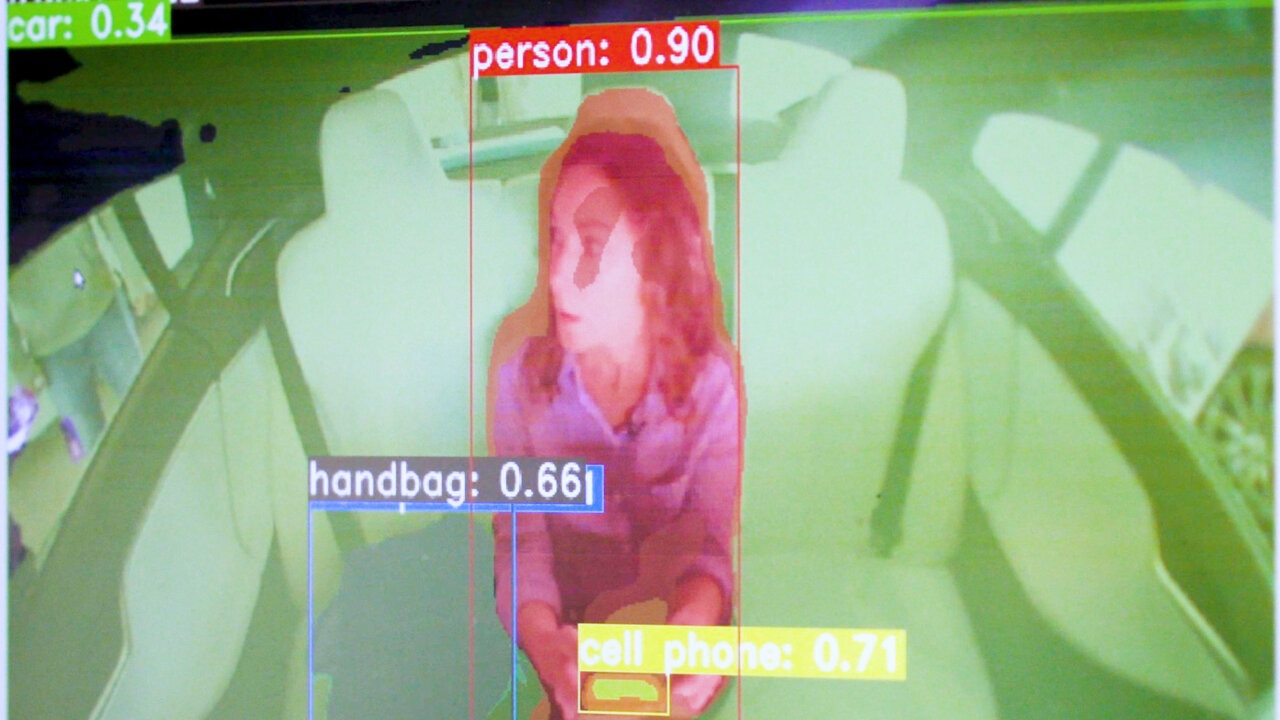CES 2020: How creepy artificial intelligence gets is really up to us
Artificial intelligence has become a favourite trend, but there’s a chance the technology could be getting too smart for its (and our) own good.

Innovation
Don't miss out on the headlines from Innovation. Followed categories will be added to My News.
Artificial intelligence has left the realm of science fiction and is now in the phones in your pocket, the computers in your office and even in the car you drive there.
It’s about to be in even more places as the industry in charge of developing it pushes for dominance on their own platforms and standards.
While for them it means new technologies — and more importantly products — that can be packaged up and sold, for us it means consistency and assuredness in a technology still somewhat shrouded in mystery and fragmented across platforms as companies compete for supremacy.
In an attempt to bring some clarity into the smart home, key industry leaders like Apple, Amazon and Google (who make the Siri, Alexa, and Assistant digital voice AI platforms that power many smart homes) joined forces through the Project Connected Home Over IP protocol. The idea is to ensure that all your smart home devices work with one another.
The three big tech companies mainly utilise their AI technology through smart speakers, and other companies across appliances, automotive and consumer electronics make their products compatible.
But there’s another approach.
At the Consumer Electronics Show in Las Vegas this week, Korean electronics manufacturer LG put forth its argument for becoming the basis of an AI platform in your house.
LG president and chief technology officer Dr I.P. Park detailed what the company is calling a “clear road map for the future of artificial intelligence”.
It’s a long road to map; much of the technology and ideas are several years away. There’s also a chance we won’t be happy when we arrive at the destination.
THE ROAD SO FAR … AND WHERE IT LEADS
Two years ago LG announced ThinQ as its competing AI platform.
Rival Korean electronics company previously tried to push its Bixby digital voice assistant, but it never really caught on, despite the company’s best efforts.
Bixby discussions have become more and more hushed, and you could be forgiven for thinking the company would be happy for Bixby to quietly fade fully into obscurity.
LG however is forging ahead.
Partnering with Canadian AI firm Element AI, LG plans to eventually create an integrated system powered by artificial intelligence, with the target of making “anywhere feel like home”.
Dr Park appeared alongside Element AI co-founder and CEO Jean-Francois Gagne to detail the four levels that will power future AI innovations. Efficiency, personalisation, reasoning, and exploration.
Efficiency has already been largely achieved. This is a simple call and response style interaction with AI. You can give a simple voice command and the AI will respond with an action.
The next level is personalisation, where AI machines learn more about their environment and their role in it and adapt to provide a better experience for you specifically.
As an example, Dr Park cited the new LG R9 robot vacuum’s ability to learn from its mistakes and stop itself from getting stuck in corners or gaps as it learns the layout of your home.
The third level is reasoning, and this is where things start to get a little ahead of the current technology.
“That’s where things get really interesting,” according to Mr Gagne.
At the reasoning level, artificial intelligence doesn’t just figure out what you want, but why you want it.
It’s also an area where LG has a distinct advantage.
If you were so inclined you could furnish your whole house with LG’s appliances and electronics, which would then be able to learn enough about you that the ThinQ AI can anticipate and provide for your every need.
The final level, what Dr Park described as “the ultimate destination for LG’s AI, is exploration.
While this is still years away, at the exploration stage AI could become like a real life human scientist, formulating hypotheses and testing them to learn and improve on itself.
This is also where the AI begins to get much scarier and creepier.
In essence the idea behind the framework is that AI would exist to serve us, work with us, learn from us, then eventually leave us in its dust.
Given this is years off there’s a chance consumers might have adjusted to and accepted AI enough that this no longer bothers them.
If we don’t then we probably won’t even see this technology become reality.
“There has to be consumer demand. It has to be something that people want otherwise why do you make it?” Dr Park told news.com.au shortly after his presentation at the opening of CES.
“I don’t want technology to be evolving just for the sake of technology, it has to be to provide value to our customers. If it’s something meaningful then we’ll speed up development, if it’s not really meaningful there’s no point us doing it.”
The way he described it, the technology is supposed to help make our lives easier, which many leading the field in AI appear to be getting wrong.
“We have to be good at everything now. We’re not only competing with traditional consumer electronics companies, but also companies that weren’t part of our landscape are now competing with us,” Dr Park said without naming Apple, Google and Amazon directly.
Dr Park said listening to customers was an important part of the development and implementation of the new technology.
“As with many innovative products out there, we do get a lot of feedback, and the feedback is not only good. We do get very negative feedback sometimes on features that we thought people would like, but the actual customers find no value,” Dr Park said.
“Many high tech companies, their focus is not in the right direction to tell you the truth. Their focus is in providing technologies that they think that people want, which is not really what people want. People want something that is really valuable to them, and I want to make sure that we provide AI and other technologies that really provide benefit to our customers, not just pushing technology to them.”
He held up his smartphone as an example.
“This is a very, very complex device and if you give this to someone who has never seen a smartphone before they will not be able to use it, you have to teach them. You have to be smart to use this. Technology should make things easier for people but in the past 10, 20 years, technology has not moved in that direction.”
He said that users not even noticing the AI was at work was the goal, but of course added that the company would respect our privacy and security, calling that “one of [LG’s] top priorities”.
While you’d be right to be sceptical of a technology company talking about how much they respect our privacy and security, the claim is a little easier to believe coming from a consumer electronics company like LG (and to an extent, Apple), since its primary concern is in selling us products, rather than harvesting our data.
“We want AI and all other technologies to be helpful to us. We don’t want AI to be obstructing our privacy or taking away things that should be ours,” Dr Park said.
“We don’t want technology to be moving into our domain, we need to keep a good balance there between technology, privacy, and humanity, that’s one thing the industry has to really focus on going forward, especially with respect to privacy and security.”
The reporter travelled to CES with assistance from LG
Originally published as CES 2020: How creepy artificial intelligence gets is really up to us


